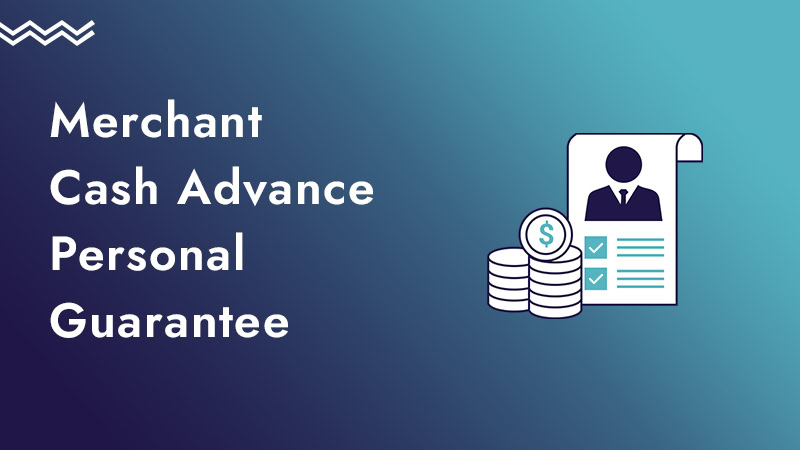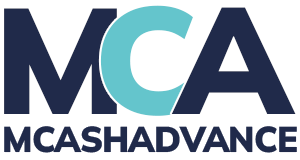
Merchant cash advances (MCAs) are often described as unsecured funding. You don’t put up collateral like property or equipment. But that doesn’t mean you’re off the hook if your business can’t pay it back.
In many MCA agreements, you’ll be asked to sign a personal guarantee. This is a legal promise that if your business fails to repay the MCA, you will. It gives the provider a way to recover funds by holding you, not just your business, personally responsible.
We’ll walk you through what that means, when it applies, and how to protect yourself before signing.
Personal Guarantees Explained
A personal guarantee is a legal commitment to repay your business’s MCA balance using your own personal finances. If your business fails to repay the advance, the provider can pursue your assets to recover the remaining amount.
Even if your business is set up as a limited company or LLC, signing this clause bypasses those protections. You’re now responsible, not just your business.
Why Providers Include Guarantees
MCAs carry higher risk for providers. They’re not backed by physical collateral, and repayments depend on your revenue. A personal guarantee shifts some of that risk onto you. It lets the provider collect directly from your accounts, savings, or assets if your business defaults.
Who Signs the Guarantee
Usually, the primary business owner signs. But if your business has multiple owners, the provider may require all of you to sign. These are called joint or proportional guarantees.
If you’re a minority shareholder or investor, check whether your signature creates personal liability. Don’t assume you’re exempt.
The Two Main Guarantee Types
There are two types of personal guarantees most commonly included in MCA agreements.
Unlimited Guarantees
You’re personally liable for the full outstanding balance, including late fees, legal costs, and penalties. If the business defaults, the provider can sue you directly.
Limited Guarantees
Your liability is capped, often based on your ownership share. For example, if you own 25 percent of the business, you may only be liable for 25 percent of the unpaid balance.
Always confirm which version applies before you sign.
What Happens After Default
If your business fails to repay the MCA, and a personal guarantee is in place, here’s what the provider may do:
- Attempt to collect through ACH or split-processing
- Freeze your business account
- File legal action using a confession of judgment clause
- Garnish wages or seize funds from personal accounts
- Place liens on vehicles or real estate
What Assets Are at Risk
If you default under a personal guarantee, the following may be pursued:
- Checking and savings accounts
- Personal investments
- Real estate you own
- Vehicles and other personal property
- Joint assets, depending on jurisdiction
Credit Score and Legal Impact
Defaulting under a personal guarantee can affect your personal credit. Some providers report defaults to credit bureaus, and legal judgments can show up on your public records. Even before default, your credit may be checked as part of the underwriting process.
Reducing Your Risk Before Signing
Here are practical ways to reduce your exposure:
- Ask for a limited guarantee
- Negotiate a liability cap
- Request carve-outs for key assets
- Remove or limit confession of judgment clauses
- Consult a lawyer or CPA to review the terms
These steps won’t always be available, but you have the right to ask before agreeing.
If You’ve Already Signed
If you’ve already agreed to a personal guarantee:
- Keep a signed copy for your records
- Monitor payments and revenue closely
- Contact your provider early if cash flow drops
- Explore restructuring or refinancing options
- Ask whether the guarantee will be released after repayment
Misunderstandings to Avoid
We’ve seen business owners overlook or misunderstand the risk they’re taking. Here are common issues:
- Thinking “no collateral” means no liability
- Believing your LLC shields you from personal risk
- Skipping legal review of the funding agreement
- Ignoring joint liability with partners
If any of these apply to your situation, stop and ask for clarification.
We’ve heard from business owners who signed MCA agreements without realizing they included a personal guarantee. Some providers bury the clause in legal language or fail to explain it clearly. We don’t believe in that. If your offer requires a personal guarantee, we’ll tell you upfront. We only ask for one when the risk of funding your MCA is too high without it. Our goal is to be transparent so you can make a decision with all the facts in front of you.
Ready to Apply?
or learn more about MCA bad credit

